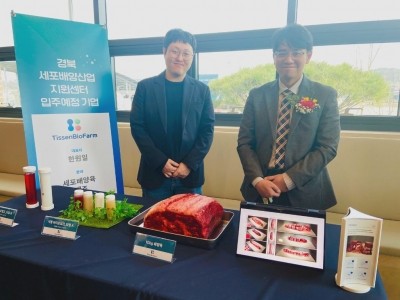‘Accelerated progress needed’: APAC alternative protein sector needs quicker transition away from mimicry

This was the opinion of an expert panel that convened at the recent ThaiFex-Anuga Asia 2023 event in Bangkok, comprising Thai Union Alternative Proteins Managing Director Maarten Geraets, Good Food Institute APAC Corporate Engagement Manager Jennifer Morton and Alimentus Managing Director Rosalind Chen.
All three experts agreed that as much as the alternative proteins sector in APAC has grown over the past few years, there are more steps that need to be taken to get it to the next stage of growth, which includes moving it past a focus on production technologies.
“There is a great deal of innovation in the sector - we already know the parameters of importance which are taste, nutrition, accessibility and pricing, and everyone is developing the technology to achieve these – but the fact is that consumers don’t eat the technology,” Morton told the floor.
“What consumers want is the value to them to make the change, whether it be nutritional profile or pricing, and industry needs to give them a good reason to make the switch – but here in APAC, sustainability is not always a major concern so it simple is not a strong enough driver.
“The thing is that imposing too many changes at one time can be difficult, with the first major change being asking consumers to make the change in ingredients to plant-based – so right now mimicking the meat and seafood products that they are used to is still a way for them to accept these more easily.”
That said, Geraets stated that the APAC alternative protein sector does need to make changes more quickly in order to achieve the desired impacts.
“Mimicking meat and seafood is actually one of the more difficult tasks in this sector as it takes a huge amount of time and money to make a [plant-based] ingredient that does not look anything like conventional fish or chicken actually look like these items,” he said.
“What APAC really needs now is to move faster to move beyond needing to mimic these products, and make alternative proteins a category and eating experience that just so happens to be made from plant proteins or cultivated protein.
“It is only with this acceleration that the category can really make an impact because already we are seeing that today plant-based products are available in abundance but not exactly flying off the shelves in many markets – which thus defeats the whole purpose.”
Local experience also vital
The topic of collaboration and co-creation has been a mainstay in many forums and speeches discussing food and beverage industry development – but according to the panel, this is a vital component for the alternative proteins sector given the fact that so many aspects still need to be worked out.
“A lot of discussion has been had with regard to collaboration and the industry is mostly aware that not only animal protein but also plant-based protein is needed now – but deeper reach into the various markets often requires co-creation with local companies,” Chen added.
“There are many plant-based firms in Europe for example, but the fact is that exporting what they currently have to Asia as-is is not always a good idea, and there is a need to work with local players that understand local tastes and palates to develop products suitable for the market.”
Morton concurred, adding that the many aspects of the alternative protein that are still ‘in progress’ is the reason partnerships are so common in this sector.
“There are simply too many things to manage that require research and development, from the innovation of crop management to product texturization and so on, so no one party can master it all,” she said.
“What we need currently is for the industry to band together in more pre-competitive collaboration, which would include things like talking to regulators to speed up regulations – these require a more united voice.
“As it is, we do expect that more partnerships are going to be found in this sector, and that co-creation is an aspect that is really here to stay.”















